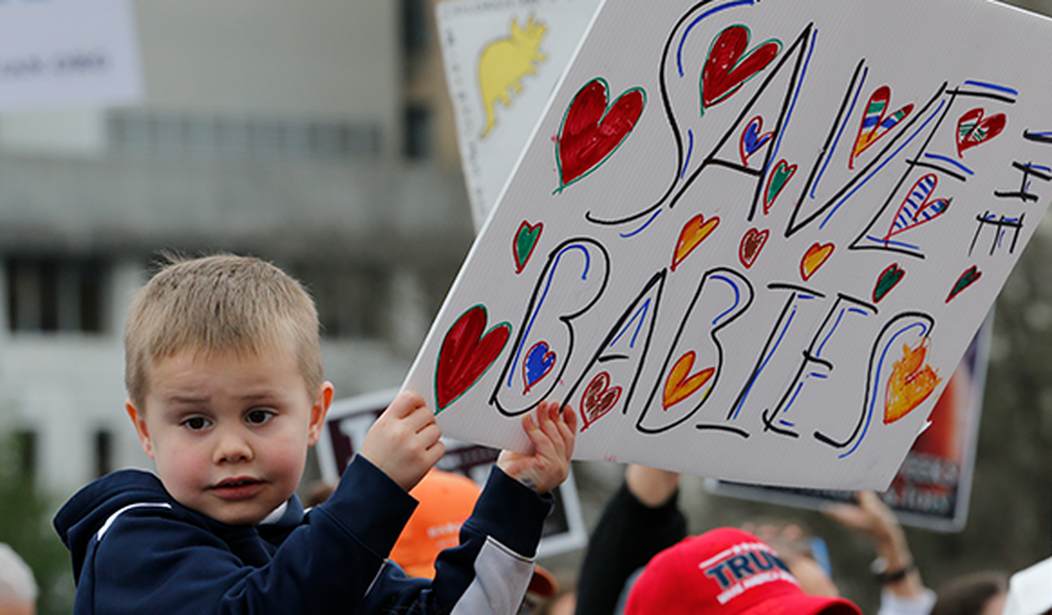Hundreds of female athletes are making headlines after claiming in a Supreme Court brief that their careers and profession depend on abortion. But their narrative isn’t unanimous. Other athletes – athletes who don’t appear in the brief – tell a different story: Their abortions wounded them.
On Sept. 20, more than 500 current and former female athletes filed an amicus brief in the upcoming Supreme Court case Dobbs v. Jackson Women's Health Organization, which concerns a Mississippi law that prohibits most abortions after 15 weeks. The women, including 26 Olympians, 73 professional athletes, and 276 intercollegiate athletes, agreed that the “physical tolls of forced pregnancy and childbirth would undermine athletes' ability to actualize their full human potential,” among other things.
“Women’s increased participation and success in sports has been propelled to remarkable heights by women’s exercise of, and reliance on, constitutional guarantees of liberty and gender equality, including the right to reproductive autonomy,” the brief’s conclusion read. “If women were to be deprived of these constitutional guarantees, the consequences for women’s athletics—and for society as whole—would be devastating.”
The big names on the brief included Olympians such as soccer player Megan Rapinoe, water polo player Ashleigh Johnson, and basketball star Diana Taurasi.
They were met with applause from abortion-focused organizations.
The Center for Reproductive Rights celebrated in a tweet that “For the first time ever in a U.S. Supreme Court case, athletes and coaches from across the country have urged [the Suprme Court] to uphold the constitutional right to abortion.” The group thanked the athletes for “showing your support for abortion rights and access in this critical time.”
Recommended
The Women’s March Foundation cited Rapinoe as saying in a statement that “forces within this country trying to deny us control over our own bodies is infuriating and un-American and will be met with fierce resistance.”
“Damn. Right,” the organization agreed.
Among other athletes, the brief cited track star Sanya Richards-Ross to claim that professions such as women’s track and field “would look entirely different” without abortion.
In 2017, Richards-Ross made headlines after revealing that “Most of the women I knew in my sport have had at least one abortion.” The brief concluded from her words that, “Without the constitutional guarantee of reproductive freedom, many women athletes would be forced to sacrifice their athletic pursuits, and progress made toward gender equality in sports would be reversed.”
But the four-time gold medalist’s signature was missing from the brief. She herself had an abortion, and her story is a tragic one. Although Richards-Ross first spoke about her abortion in 2017, it happened several years before, in 2008 – the day before she flew to Beijing to compete in the 2008 Olympics.
“People say, ‘Just have an abortion.’ Well, you don't ‘just have an abortion,” she said in an interview earlier this year. “It was extremely traumatic for me.”
Among other things, it hurt her ability to compete as an athlete.
“The night before the final, I couldn't sleep. I was in so much turmoil, mentally, physically,” she remembered. “So when I finished with a bronze medal, it’s like everything was wrong, right? Like, here I am, I just had an abortion. And so that was really hard for me and really crushing.”
After competing at the Olympics, she remembered feeling “completely lost.”
“Lost physically, lost spiritually, lost emotionally, and I'm kinda crouched down on the ground crying,” she recalled.
But after an encounter with God, she began healing “from that whole experience.” In a 2017 testimony at her church in Texas, she asked the congregation, “But an abortion? ‘Thou shalt not kill.’ How could I? It went against everything I stood for and everything I wanted to be.”
“Isn't it a blessing to know that we mean so much [more] to God than our poor choices?” she added. “And isn't it true that our God is so much greater than our shame?”
Another gold medalist, hurdler Brianna McNeal, made headlines this summer after revealing that she “didn’t open her door to antidoping officials” last year because she was “traumatized after having an abortion.” In both media interviews and on social media, McNeal confessed that her abortion left her “traumatized,” “shaken,” and “disoriented.”
In one social media post, the athlete admitted she was “under physical and mental trauma after undergoing an abortion.” It left her “physically and emotionally drained,” she said, for an “entire weekend.” She also accused investigators of making her “relive this hellish experience.”
Her signature was also missing from the brief.
Other athletes are alive today because of unsucessful abortions. Ernie Gawilan, a Paralympic swimmer from the Philippines, survived an attempted abortion that left him with no legs and an underdeveloped left arm.
“I must have been a good swimmer even in my mother’s womb because I survived the abortion. I just swam,” Ernie joked during a 2014 interview.
Abortion – the intentional descruction of an innocent human life – scars both women and men. This includes women who regret their abortions or who have been wounded by abortion. This includes athletes.

























Join the conversation as a VIP Member